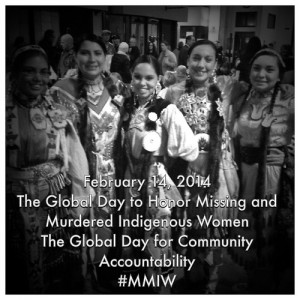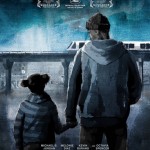 Rehearsals for The Vagina Monologues have begun on my campus again this year and I have a lot of jumbled thoughts and reactions to taking the stage with students once again. Things I want the students to know, things I want the world to know, things I want to remember.
Rehearsals for The Vagina Monologues have begun on my campus again this year and I have a lot of jumbled thoughts and reactions to taking the stage with students once again. Things I want the students to know, things I want the world to know, things I want to remember.
When the brave first group of students staged this production on campus here in 2005, they were met with some resistance around use of space. From religious leaders. Participants had anti-feminist and anti-VDay fliers left on their cars. From a religious organization. We had to communicate with security to ensure a safe and successful event.
Today, this is an annual and expected event that barely raises an eyebrow. In some ways, its continued presence has been part of the reason that conversations about gender on campus have changed.
This will be the fifth time I’ve been on stage in our productions of the Monologues, and about the millionth time I have seen and heard them. I remember the first time, a professional production in Denver with my friend Stacie about fifteen years ago… I think we might have bought scalped tickets outside the theatre, it was such a hot show back then. Now, I can almost recite every one of them. In my head, they live on in the voices of specific women I know who have memorably brought them to life over the past decade. Kelsey’s The Flood, Kaitlin and “Bob,” Alisia’s moaning, Nikki’s Angry Vagina, Kelly whose own mother was there in the room, Chandra’s tale of the little coochi snorcher, Jenny asking the nurse to “bring me the vagina!”, Sarah’s lists, Jen and the taffeta ball gown, Jordan and her really smart brain.
I remember trying to explain the concept of a triple orgasm to a young performer … more than once.
I’ve seen this show affect and empower survivors of violence in life-saving ways, which is why I continue to support it … and yet there’s a lot of substantial feminist critique of The Vagina Monologues out there now … do you young performers know this? You need to.
It’s a flawed piece, in many ways. It’s relatively dated in cultural references, it’s heteronormative, East-coast situated (our small-town Midwestern audience never gets the “split knish” reference, among other things), and its author is now widely critiqued for her colonial feminist tendencies.  Last year, Lauren Chief Elk critiqued Eve Ensler for her use of indigenous women’s images in service of white feminist activism, calling out Ensler’s ignorance of indigenous women’s activism:
Last year, Lauren Chief Elk critiqued Eve Ensler for her use of indigenous women’s images in service of white feminist activism, calling out Ensler’s ignorance of indigenous women’s activism:
Your organization took a photo of Ashley Callingbull, and used it to promote V-Day Canada and One Billion Rising, without her consent. You then wrote the word “vanishing” on the photo, and implied that Indigenous women are disappearing, and inherently suggested that we are in some type of dire need of your saving. You then said that Indigenous women were V-Day Canada’s “spotlight”. V-Day completely ignored the fact that February 14th is an iconic day for Indigenous women in Canada, and marches, vigils, and rallies had already been happening for decades to honor the missing and murdered Indigenous women.
The Pittsburgh One Billion Rising Campaign this year has responded to this and other criticism of Ensler’s campaign by renaming themselves the “One Billion Been Rising” Campaign, “recognizing the long herstory of indigenous and women of color resisting gender based violence and modeling the transformative leadership and vision of young women of color.”
Andrea Smith has begun a list describing what a “justice-based movement to end gender violence” would look like in order to move us all “Beyond Eve Ensler,” and it includes things like this:
– This movement would interrogate how the very category of “woman” has served as a tool of violence. It would examine how colonialism has operated by imposing a gender binary system in indigenous communities in order to facilitate the imposition of colonial heteropatriarchy.
– This movement would recognize the state as a primary perpetrator of gender violence. Through chattel slavery, the sexual colonization of Indigenous women, the sexualized exploitation of immigrant workers, gender-based crimes in war, etc., the state has continually used and benefited from gender violence as a strategy to enforce white supremacy, imperialism and anti-Black racism.
– This movement would recognize capitalism as inextricably linked to gender violence through the constant commodification of bodies, identities, lands, and resources.
– The movement would recognize the central role of western imperialism in contributing to gender violence globally. It would thus stop presuming a simple solidarity with victims of violence in countries around the world without a critical examination of how people in Western countries benefit from the imperialism that helps shape conditions of gender violence globally.
This is a lot to understand when you’re a 19 year old student at a small Midwestern college. And yet this is what happens when you take a stand for justice on a stage or in a street or online: You become part of a larger discourse and are called to be accountable to a larger community of activists. It might not be easy. It is important.
My hope is that for the students who cross our stage and who enter our theatre, for whom this production really is a catalyst and a consciousness-raising experience, this is a beginning and not an ending. That it become the start of a learning process rather than the culmination of it.
Because it’s not just about breaking boundaries on stage and on campus, it’s about breaking up the structures and systems of oppression that seem to require it.
For more information on the 23rd Annual Women’s Memorial March for Missing and Murdered Women that Lauren Chief Elk mentioned, click here and here.












